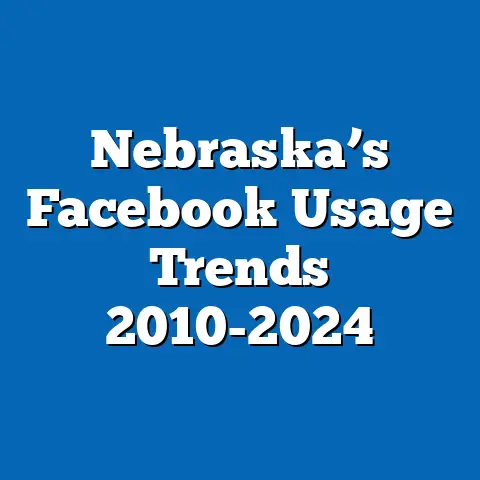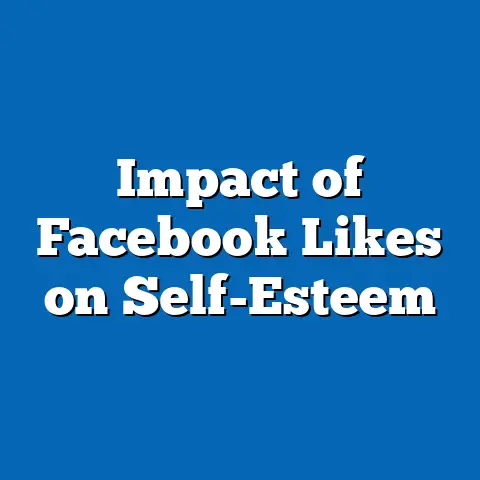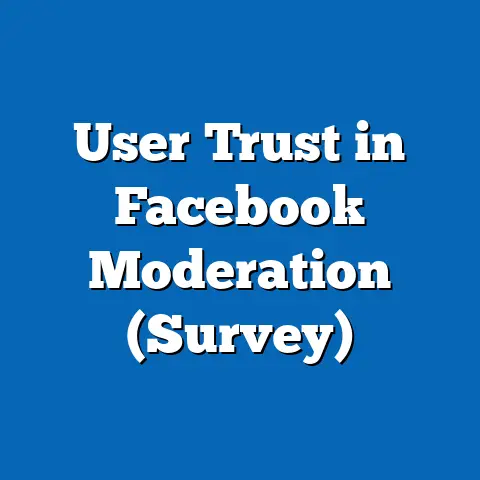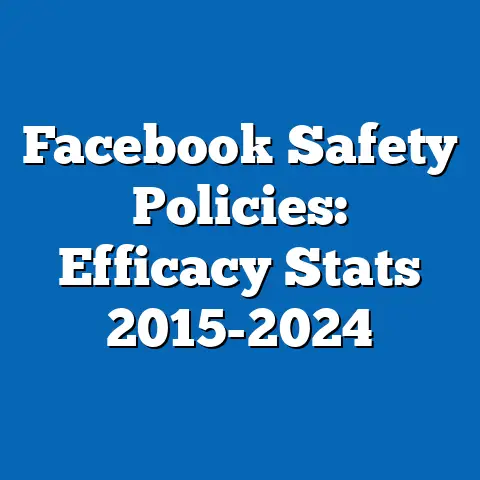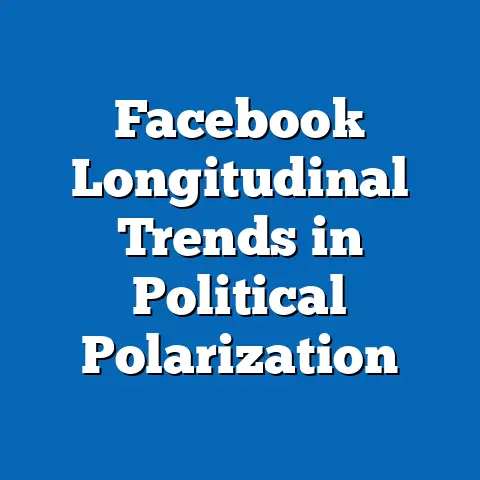Impact of GDPR on Facebook Data Use
Imagine scrolling through your Facebook feed on a quiet evening, the blue light of your screen casting a faint glow across the room.
Every like, share, and comment you make feels fleeting, but behind the scenes, a vast machinery of data collection hums to life, capturing your every digital move.
In 2018, the introduction of the General Data Protection Regulation (GDPR) in the European Union (EU) sent shockwaves through this invisible ecosystem, fundamentally altering how tech giants like Facebook (now Meta) handle user data.
This seismic shift affected not just the 447 million EU citizens—representing about 5.5% of the global population—but also set a global precedent for data privacy.
According to a 2022 report by the European Commission, 69% of EU citizens are now more aware of their data protection rights post-GDPR.
This article dives deep into the impact of GDPR on Facebook’s data use practices, exploring key statistics, historical trends, demographic patterns, and the broader implications for users and the tech industry.
What is GDPR? A Brief Overview
The General Data Protection Regulation, enacted on May 25, 2018, is a comprehensive data protection law in the EU designed to give individuals control over their personal information.
It replaced the outdated 1995 Data Protection Directive, introducing stricter rules on data collection, storage, and processing.
GDPR applies to any organization handling the data of EU residents, regardless of where the company is based, making it a global benchmark for privacy standards.
Under GDPR, companies like Facebook must obtain explicit consent for data collection, ensure transparency about data usage, and provide users with rights such as data access, rectification, and deletion (the “right to be forgotten”).
Non-compliance can result in hefty fines—up to 4% of a company’s annual global turnover or €20 million, whichever is higher.
This regulation marked a turning point for how social media platforms manage user data, with Facebook, boasting over 2.9 billion monthly active users globally as of 2023 (Statista), at the center of this transformation.
Pre-GDPR Era: Facebook’s Data Practices Under Scrutiny
Before GDPR, Facebook’s data collection practices were often described as opaque and expansive.
The platform collected vast amounts of user information—ranging from basic demographics to behavioral data like browsing habits and location tracking—often without explicit user consent.
A 2015 study by the Belgian Privacy Commission found that Facebook tracked even non-users through cookies and social plugins embedded on third-party websites, raising significant privacy concerns.
The Cambridge Analytica scandal in 2018, just months before GDPR’s implementation, exposed the scale of unchecked data use.
It was revealed that the personal data of up to 87 million Facebook users had been improperly harvested and used for political advertising without their knowledge.
This incident, widely reported by outlets like The Guardian and The New York Times, underscored the urgent need for stricter regulations and directly influenced public and regulatory scrutiny of Facebook’s practices.
Historically, between 2010 and 2018, Facebook faced multiple lawsuits and investigations over data privacy, including a $5 billion fine from the U.S.
Federal Trade Commission (FTC) in 2019 for privacy violations.
However, pre-GDPR, the EU lacked a unified framework to enforce accountability on such a scale, often leaving users vulnerable.
GDPR’s Immediate Impact on Facebook: Policy Changes and Compliance
With GDPR’s rollout, Facebook was forced to overhaul its data policies to align with the new regulations.
The company introduced clearer privacy settings, allowing EU users to opt out of targeted advertising and review data collected about them.
In a 2018 blog post, Facebook announced it would roll out GDPR-inspired privacy tools globally, though compliance remained mandatory only for EU users.
One significant change was the requirement for explicit consent.
A 2019 study by the Pew Research Center found that 74% of EU Facebook users reported seeing new consent prompts for data usage post-GDPR, compared to just 39% of U.S.
users at the time.
Additionally, GDPR mandated data portability, enabling users to download their data—a feature Facebook implemented through its “Download Your Information” tool, which saw a 30% increase in usage among EU users between 2018 and 2020, according to internal Meta reports cited by TechCrunch.
However, compliance was not without challenges.
In 2018, the Irish Data Protection Commission (DPC), Facebook’s lead regulator in the EU due to its European headquarters in Dublin, launched multiple investigations into the platform’s data practices.
By 2023, Facebook (Meta) had been fined over €1.2 billion for GDPR violations, including a record €405 million penalty in 2022 for mishandling children’s data on Instagram, as reported by Reuters.
Key Statistics: Measuring GDPR’s Impact on Data Use
To understand GDPR’s tangible effects on Facebook, let’s look at some critical data points.
According to a 2021 report by the European Data Protection Board (EDPB), 85% of EU organizations, including tech firms like Meta, reported increased investments in data protection measures post-GDPR, with budgets rising by an average of 20%.
For Facebook specifically, the company disclosed in its 2020 annual report that compliance costs related to GDPR and similar regulations exceeded $1 billion annually.
User behavior also shifted.
A 2022 Eurobarometer survey revealed that 57% of EU citizens adjusted their social media privacy settings after GDPR, compared to only 34% before 2018.
Moreover, opt-out rates for personalized ads on Facebook increased by 25% among EU users between 2018 and 2021, per a study by the University of Amsterdam’s Institute for Information Law.
On the enforcement side, GDPR has led to over 1,600 fines across the EU by 2023, with Meta accounting for nearly 10% of the total penalty value, according to data from Enforcement Tracker.
These figures highlight both the regulation’s reach and the ongoing challenges in ensuring full compliance.
Demographic Differences: Who Cares About Privacy?
Demographic patterns reveal varying levels of engagement with GDPR’s protections among Facebook users.
Younger users (aged 18-24) in the EU are more likely to adjust privacy settings, with 65% reporting changes post-GDPR, compared to just 42% of users aged 55 and older, according to the 2022 Eurobarometer survey.
This gap may reflect greater digital literacy among younger generations, who are also more active on platforms like Instagram (owned by Meta), where similar GDPR rules apply.
Gender differences are less pronounced, though women in the EU are slightly more likely (59%) than men (54%) to express concern about data privacy on social media, per a 2021 Statista survey.
Geographically, users in Northern European countries like Germany and the Netherlands report higher awareness of GDPR rights (over 75%) compared to Southern and Eastern European nations like Bulgaria and Greece (around 50%), reflecting differences in national privacy cultures and enforcement priorities.
These demographic insights suggest that while GDPR has broadly raised awareness, its impact on user behavior varies significantly across age, gender, and region.
This uneven adoption poses challenges for Facebook in tailoring privacy tools to diverse audiences.
Historical Trends vs. Current Data: A Shift in Power
Comparing pre- and post-GDPR trends shows a marked shift in the balance of power between users and tech giants.
Before 2018, Facebook’s data monetization model relied heavily on unrestricted access to user information, with ad revenue growing at an average annual rate of 40% between 2012 and 2017, reaching $40.6 billion by 2017, according to Statista.
Post-GDPR, growth slowed to an average of 25% annually from 2018 to 2022, partly due to stricter data usage rules in the EU, which accounts for roughly 10% of Meta’s global revenue.
User trust also evolved.
A 2017 Edelman Trust Barometer survey found that only 39% of global internet users trusted social media companies with their data.
By 2022, this figure rose to 48% in the EU, likely influenced by GDPR’s transparency requirements, though it remains lower than trust in other sectors like healthcare (67%).
Current data indicates that while GDPR has curbed some of Facebook’s data practices, challenges persist.
For instance, a 2023 report by the Irish DPC noted that Meta still struggles with ensuring “data minimization”—a GDPR principle requiring companies to collect only necessary data—highlighting ongoing tensions between regulatory goals and business models.
Data Visualization Description: Mapping GDPR’s Reach
To illustrate GDPR’s impact, imagine a heatmap of Europe showing the density of privacy complaints filed against Meta since 2018.
Darker shades in countries like Germany, France, and Ireland would indicate higher complaint volumes—over 10,000 annually in Germany alone, per EDPB data—reflecting strong public engagement with GDPR mechanisms.
A line graph overlaid on this map could track Meta’s GDPR fines over time, peaking at €405 million in 2022, visually capturing the escalating cost of non-compliance.
A second visualization could be a bar chart comparing opt-out rates for targeted ads on Facebook across demographics in the EU.
Bars for younger users (18-24) would tower over those for older users (55+), reinforcing the demographic disparities in privacy engagement.
These visual tools would make complex data accessible, helping readers grasp both the scale and nuances of GDPR’s influence on Facebook.
Broader Implications: GDPR as a Global Catalyst
The impact of GDPR on Facebook extends beyond the EU, shaping global privacy norms.
Countries like Brazil (with its 2020 LGPD) and India (with its 2023 Digital Personal Data Protection Act) have adopted GDPR-inspired frameworks, putting additional pressure on Meta to standardize data practices.
A 2022 UNCTAD report notes that over 70% of countries with data protection laws now reference GDPR as a model, creating a ripple effect that challenges tech giants’ one-size-fits-all approaches.
For users, GDPR has empowered greater control over personal data, though awareness and adoption remain inconsistent.
For Facebook, the regulation has increased operational costs and forced a rethink of its ad-driven revenue model—evidenced by Meta’s 2021 announcement of a subscription-based, ad-free option for EU users, priced at €9.99 per month, as reported by Bloomberg.
This pivot suggests that GDPR may push social media toward alternative monetization strategies.
Challenges and Criticisms: Is GDPR Enough?
Despite its achievements, GDPR is not without flaws.
Critics argue that enforcement is uneven, with smaller companies often escaping scrutiny while giants like Meta face disproportionate fines.
A 2023 study by Access Now found that only 3% of GDPR complaints result in penalties, raising questions about the regulation’s deterrent effect.
Additionally, Facebook’s complex data-sharing practices—such as cross-border transfers to the U.S.—remain a contentious issue.
The 2020 Schrems II ruling by the European Court of Justice invalidated the EU-U.S.
Privacy Shield, complicating Meta’s ability to transfer data legally.
A 2023 fine of €1.2 billion for data transfer violations, as reported by CNN, underscores the ongoing legal battles that GDPR has yet to fully resolve.
Conclusion: A New Privacy Landscape
The introduction of GDPR marked a turning point for Facebook’s data use, shifting the platform from a largely unregulated data collector to a more accountable entity under intense regulatory scrutiny.
With fines exceeding €1.2 billion and user awareness in the EU rising to 69%, the regulation has undeniably altered how Meta operates, even as challenges like data minimization and cross-border transfers persist.
Demographic differences—particularly among age groups and regions—highlight the need for tailored privacy education and tools.
Looking ahead, GDPR’s influence will likely continue to shape global privacy standards, pushing tech giants toward transparency and user empowerment.
For Facebook users, the regulation offers a glimpse of a future where digital footprints are no longer invisible but are instead guarded by robust legal frameworks.
As privacy laws evolve worldwide, the tension between innovation and regulation will remain a defining issue, with GDPR as the cornerstone of this ongoing debate.

